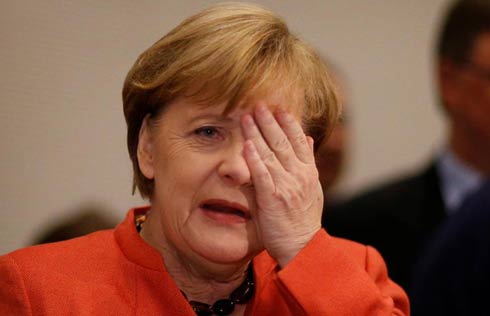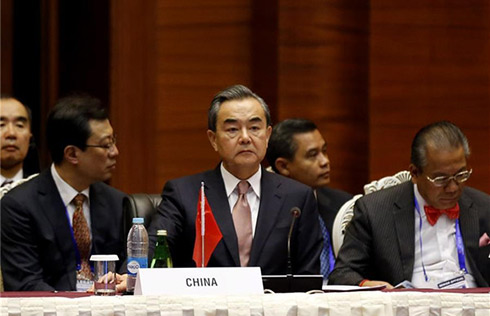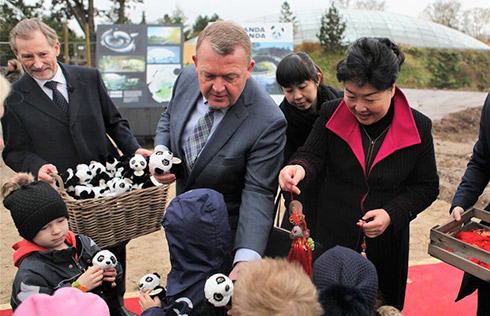China and UK seek cooperation in vocational education
China will face a talent gap of 20 million people in 2020 and 30 million in 2025 in the manufacturing industry because of its rapid and steady economic growth, according to Wang Xiaojun, deputy director general of the Ministry of Human Resources and Social Security.
Speaking at the 2017 China-UK Forum on Vocational Skills Development on Monday, Wang said that China has placed an enormous amount of attention on technical vocational education and training to support its national strategy of Made in China 2025 since it unveiled the plan in 2015, and hoped that China and the United Kingdom will work together to deepen cooperation in the area.
Richard Burn, director general of International Trade China at the UK embassy in China, said that China already boasts the largest TVET system in the world, with thousands of secondary and tertiary level training institutions operating across the country.
"China's successful bid to host the 46th WorldSkills Competition is an example of the continued national ambition to enhance the vocational skills of its workforce," said Burn.
He also noted that there is great potential in China and UK cooperation in vocational education and mentioned that during President Xi Jinping's 2015 visit to the UK the two countries issued a joint statement that included a commitment to boost cultural and educational links.
Last week, Theresa May, the Prime Minister of the UK, reiterated the UK's commitment to the Golden Era of relations between the countries.
"Both countries are committed to promoting more opportunities for educational organizations to exchange experience and cooperate," Burn said.
During the forum, representatives of governments, industries bodies, businesses and vocational colleges from China and the UK gave speeches and held panel discussions on topics including apprenticeships, overseas talent development and talent collaboration under the Belt and Road Initiative.
Liu Jibin, deputy general of the Department of Labor and Assets in China Railway Rolling Stock Corp, said that China's rapid economic growth demands more talent. He took the China Railway Rolling Stock as an example, saying that China is now the largest country in transportation exports, which means a large number of employees who are skilled in transportation techniques as well as speaking English are in need in international business negotiations.
Jane Grant, who is the head of Commercial Development of Edinburgh College in Scotland, said the college has worked with China since 2004, teaching mechanics and engineers, which may meet the need of companies like China Railway Rolling Stock.
"We have trained over 800 Chinese teachers of English both in Edinburgh and China, " said Grant, who also stressed that the Edinburgh College is keen to further develop its work in China through a TVET consultancy.
"There is a large potential in vocational education cooperation," said Devinder Yadav , who is a professor of aerospace practice at Nottingham University, Ningbo. He also added that "the lack of companies involved in vocational talent development as well as a system of modern vocational training contribute to the gap in talent".
Yadav suggested that the governments of both countries could give more support in implementing contemporary apprenticeships, which will motivate companies and colleges to introduce joint talent development programs according to industry requirements.
The forum, supported by China's human resources ministry and hosted by the UK Department for International Trade together with the China-Britain Business Council, is the first vocational skills trade mission forum between China and the UK.
Beijing was the first stop for the UK delegations, who will also visit Dalian, in Liaoning province, and Ningbo, in Zhejiang province, to continue discussions with Chinese partners.





















